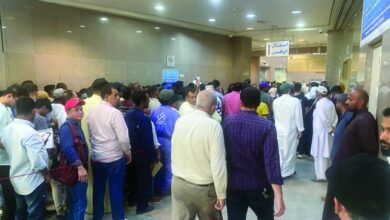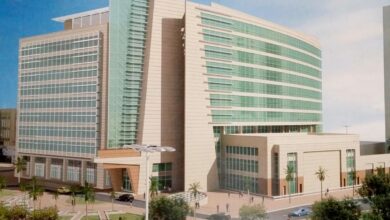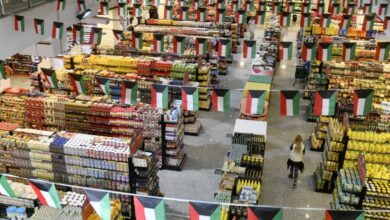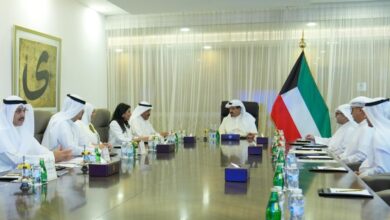“Foreign nationals hijacking Kuwaiti identity through fraudulent citizenship”
Sheikh Fahad Al-Yousef, First Deputy Prime Minister and Minister of Interior, explained that the nationality review was prompted by concerns that Kuwait was ‘hijacked,’ with foreign nationals fraudulently obtaining citizenship through payments and unfamiliarity with Kuwaiti society.
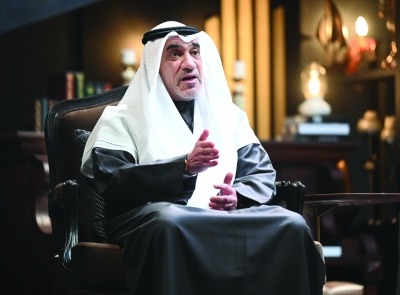
• Sheikh Fahad Al-Yousef stated said the citizenship issue, marked by forgery and unjust acquisitions, required swift action, and with the leadership of His Highness Sheikh Meshal Al-Ahmad Al-Jaber Al-Sabah, decisive steps were taken to prevent further harm to Kuwait’s national identity.
• Sheikh Fahad Al-Yousef stated that the future composition of the National Assembly will change, as many may have their nationalities revoked, affecting who can vote and run for office, with 35,000 individuals potentially impacted.
• The decision to reopen the nationality file was driven by concerns that Kuwait was ‘hijacked’ by foreign nationalities unfamiliar with Kuwaiti society, with efforts to amend nationality laws previously blocked by the National Assembly over the past 40-50 years.
Sheikh Fahad Al-Yousef, First Deputy Prime Minister and Minister of Interior, stated that the decision to review the nationality file was driven by concerns that “Kuwait was hijacked.” He noted that various foreign nationalities, unfamiliar with Kuwaiti society in terms of lifestyle, language, culture, and social ties, had been integrated. He also highlighted cases of lineage mixing and stressed that many individuals fraudulently obtained Kuwaiti nationality by paying Kuwaitis for it, the Al Rai newspaper reported.
He explained that the meetings of the Supreme Committee for Nationality Investigation, which he chairs, will continue without interruption; however, the pace of its work is linked to the files presented. Its meetings may not necessarily occur weekly and could be held once every two or three weeks, as needed.
He pointed out that after completing the files of “Article 8” (wives of Kuwaitis), the focus shifted to the files of “noble deeds,” where each file is being thoroughly examined. Work will continue with the files of forgers and double-crossers.
This came in a special interview with the First Deputy during the first episode of the “Masrah Al-Hayat” program, hosted by colleague Ali Al-Aliani and broadcast on Al-Rai TV and the “ROD” platform.
Al-Yousef stated, “I am a human being who makes mistakes and is also right. The citizenship file is a vast one, and the issues within it have been ongoing for many years, up until 2022. What occurred was forgery and the acquisition of citizenships unjustly. I believe—and I am certain—Kuwait has been blessed with an Amir like His Highness Sheikh Meshal Al-Ahmad Al-Jaber Al-Sabah, and I am sure every loyal Kuwaiti feels the same. We have reached a point where swift and decisive action was needed on the citizenship issue. Had we delayed further, only God knows where Kuwait would have ended up regarding this national identity file.”
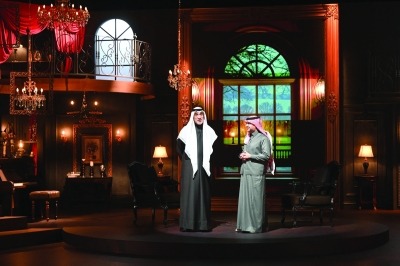
He added that “I was entrusted with a team of fellow ministers and officials to correct the flaws in the national identity. I was also appointed to lead the Supreme Committee for Investigating Nationality, and we began our work with honesty, sincerity, and dedication to Kuwait. This is something that many people appreciate today, while others may feel uneasy about it. However, it is our duty, and we must fulfill it. We were assigned this responsibility, and we must handle it with integrity and sincerity, being accountable before God, His Highness, and the Kuwaiti people who are the true sons of this land.”
Kuwait was hijacked
The First Deputy explained that the decision to reopen the nationality file was made because “Kuwait was hijacked, and various foreign nationalities have become part of it. I will not specify these nationalities, but they are unfamiliar to Kuwaiti society in terms of social life, language, culture, and social relations. Additionally, lineage has been mixed among them, and this has been happening for 40 to 50 years. But should we continue like this forever? I believe this is one of the mistakes. Previous governments attempted multiple times to form committees to amend nationality laws, but all efforts were blocked by successive National Assembly councils to prevent this file from being fully opened as it is now.”
Nationality for money
Al-Yousef stressed that several individuals obtained citizenships in exchange for money, paid to people—unfortunately, Kuwaitis—who helped naturalize these categories. He visited some of the prisoners involved, and they admitted to paying for citizenship.
He warned that if the issue had remained unchecked, the demographic makeup of Kuwait would have shifted, not just in terms of citizenship, but in its Kuwaiti nature, which has been maintained since the 1920s and 1930s when Kuwait was solely for its people.
Kuwait tightens citizenship rules with foreign wives and children of Kuwaiti women affected
Al-Yousef discussed the recent amendments to the Nationality Law, noting that several articles were canceled. About three months ago, the law was revised, and now, a Kuwaiti man can no longer marry a foreign woman and later naturalize her. This change affects Article 8, which previously allowed the wife of a Kuwaiti man to acquire citizenship, and Article 5, which applied to the children of Kuwaiti women. In some cases, it’s unclear if the woman was actually divorced or remarried in another country, which led to some children being naturalized unfairly.
Long stays and residency
He emphasized that children of Kuwaiti women who lose citizenship will be granted long-term residency, which can be renewed. These individuals, who are considered residents, will receive a 10-year residency under the new foreign residency law. While they respect that their mother is Kuwaiti, Al-Yousef argued they do not deserve citizenship but should be granted long-term residency, similar to old investors, doctors, and engineers.
Al-Youssef explained that after the committee addresses “Article 8” files, it will focus on forgers, dual nationals, and the children of Kuwaiti women. The frequency of meetings will decrease depending on the workload, possibly meeting once a month or every month and a half.
Long years of hard work
The First Deputy Prime Minister highlighted the extended timeline needed to complete the investigation into the nationality issue. “There is no specific deadline for the committee to finish its work on this file,” he stated.
He explained that before the invasion, about 600 cases were handled, increasing to 1,600 post-liberation. The committee aims to complete its review of these files within months. The files of Kuwaiti women’s children are being carefully examined, while cases involving dual nationality and forgery will take much longer, potentially 10 to 20 years. Identifying forgers and dual nationals is difficult and time-consuming, requiring solid evidence to confirm dual nationality or prove document forgery to acquire Kuwaiti citizenship.
No fear of criticism
Al-Yousef emphasized his hands-on approach, explaining that he has assistants across ministries and sectors under the Interior Ministry, but he is deeply involved in every aspect of his responsibilities.
“My nature is to follow up on every detail in any department I am responsible for,” he said, adding that he personally attends all meetings of the Supreme Committee for Investigating Citizenship. While the committee could form multiple subcommittees, he insisted that he does not want anyone to be wronged in the process.
Al-Yousef shared personal reflections, admitting that he often struggles to turn off his mind, even when he’s asleep. Despite finding the current period of responsibility more challenging than his past work in the military, he feels compelled to give his all. “The retirement period is much more comfortable,” he confessed, but he works more than 20 hours a day, motivated by the trust and support he receives from His Highness.
Discipline and legacy
Al-Yousef attributed much of his work ethic and discipline to his military service, where he spent 27 years from 1979 to 2005. He also spoke fondly of His Highness Sheikh Jaber Al-Ahmad, who taught him discipline, accuracy, and time management.
“I lived half of my life with my father, may God have mercy on him, and the second half I learned from Sheikh Jaber Al-Ahmad’s upbringing,” he said. His maternal family, the Al-Humaidhi family, played an important role in his life, with his uncles and aunts providing support and guidance. Al-Youssef fondly recalled his early years in a mud house in the Jableh area before his family settled in Adeliya.
Personal life and commitment to Kuwait
Addressing his daily routine, Al-Yousef revealed that he only sleeps 3 to 4 hours a night. “Kuwait deserves more than for us to spend our time sleeping,” he remarked, acknowledging the sacrifices made over the years. He credited his wife for being supportive throughout his career, from his days as an officer to his role as a leader in the Ministry of Defense and Interior. Despite the sacrifices, he ensured that he spent quality time with his family, particularly his grandchildren.
In a candid statement, Al-Yousef admitted that his close family members, including his mother, worry about his lack of security. However, he reassured them, saying, “I’m not afraid of anyone, because God Almighty is the protector. If I’m wrong, then I fear for myself from the person I wronged, but I haven’t wronged anyone.” His commitment to Kuwait’s welfare is unwavering, and he continues to live without the need for security or special protection, underscoring his deep sense of responsibility to the country.
The end of ‘noble deeds’ for citizenship
The Minister of Interior has firmly stated that the practice of granting Kuwaiti citizenship based on “noble deeds” has effectively ended, calling it a thing of the past. He emphasized that, while it’s not entirely impossible for someone to receive citizenship on these grounds, it is nearly unthinkable today.
“I am not saying that noble deeds have stopped entirely, but it’s nearly impossible now for someone to obtain citizenship solely on this basis,” said Al-Youssef. He explained that although some individuals had been granted citizenship based on noble deeds in the past, many were ultimately found undeserving. He recalled situations where individuals claimed they were granted citizenship under Article 8, but it was discovered that no Amiri decree had been issued for their naturalization. “In my view, these people, especially those who now sit outside Kuwait and incite against the country, clearly do not deserve to retain their citizenship,” Al-Youssef affirmed.
Redefining noble deeds
The minister took time to clarify what constitutes a “noble deed.” He mentioned historical examples such as the children of martyrs, doctors, teachers, and engineers who contributed significantly to Kuwait’s development before its oil boom. “These individuals worked for Kuwait with no expectation of financial gain, helping build the country when it had limited resources,” Al-Youssef said. He stressed that these were the true examples of noble deeds.
However, he expressed skepticism over more recent claims of noble deeds, stating, “If someone has only worked in Kuwait for a few years in exchange for a salary, what have they truly done for Kuwait to deserve citizenship?”
According to Al-Yousef, a noble deed involves long-term contributions to Kuwait, particularly in the government sector or areas such as medical care, education, and infrastructure, not just paid work in the private sector.
The future of noble deeds
Al-Yousef also addressed the future of noble deeds, explaining that the Ministry will soon open the files of individuals who have been granted citizenship on the basis of such deeds.
He stressed that no file will be overlooked, and all individuals who obtained citizenship through noble deeds will be carefully reviewed. “What has the private sector really contributed in terms of noble deeds to Kuwait?” he asked, noting that such contributions are highly questionable in many cases.
The role of politics and connections
Further discussing the concept of noble deeds, Al-Yousef revealed that some individuals had been naturalized due to political influence and connections, particularly in cases involving officials and members of the National Assembly. “Many of the noble deeds granted in the past served personal interests rather than the country,” he said. “In my review, I will ensure that all citizenships granted through political influence and financial transactions are revoked.”
The minister was blunt about his belief that money and connections were behind most of these so-called noble deeds. “All the nationalities granted based on noble deeds were individuals with existing citizenships elsewhere. Many paid sums of money to obtain Kuwaiti citizenship, using influence to transform their status,” he stated.
Al-Youssef vowed to take a hard stance on the issue, demanding proof from those who claim to have earned their citizenship through noble deeds. “Prove your noble deed, and you may retain your citizenship,” he concluded.
Great work of artists
Al-Yousef acknowledged the historical role that individuals with significant contributions, often labeled as “noble deeds,” played in the development of Kuwait, but emphasized that the practice of granting citizenship based on such deeds is now effectively obsolete. He explained, “What a great work the artists have done for Kuwait. The word ‘great’ is a great word, and I also ask for your pardon for mentioning names. Some of these artists have other nationalities, and in Kuwait dual citizenship is prohibited. Two of those mentioned in this meeting have nationalities other than Kuwaiti, and they are well-known.”
He pointed out that while noble deeds were once celebrated, recent changes in Kuwait’s legal framework, particularly regarding foreign residency, have placed restrictions on such practices, limiting residency periods for those claiming noble deeds to 10 or 15 years. This shift reflects a broader change in Kuwait’s nationality policy, now focusing on children of Kuwaiti women who lack Kuwaiti citizenship. “We will open the residency period of 10 and 15 years to the children of Kuwaiti women,” Al-Yousef said, marking a significant legal shift for these individuals.
This new policy seeks to address the legal status of children of Kuwaiti women and offer them more permanent residency options, which marks a departure from the past.
Thoughtful and calculated decisions
Al-Yousef also underscored that all decisions regarding nationality and citizenship are well-thought-out, with the long-term effects being carefully considered. “Every person who makes a decision will be aware of its consequences, and we know the consequences of our decisions, and we have studied them carefully and put in place all the solutions for them,” he stated.
He assured that these reforms were not taken lightly and that the Ministry of Interior was fully prepared to handle the implications. However, he also recognized the frustrations some may feel as changes unfold, noting that “unfortunately people want it to be, and it is not like this.”
A significant part of the reforms involves giving Kuwaiti women whose citizenship has been revoked a certain level of privileges, provided their security files are clean. “The Kuwaiti woman who is the wife of a Kuwaiti man whose citizenship has been revoked will receive privileges, on condition that her security file is clean,” he clarified.
The Ministry has committed to thoroughly reviewing these files to ensure fairness. Those with clean records will continue to receive benefits, while individuals with problematic files will have their privileges suspended.
Independent Nationality Authority
In an effort to streamline the process and increase transparency, Al-Yousef announced plans to create an independent Nationality Authority. “The nationality authority that we want to establish will be an independent entity,” he said. This body, which is still under development, will have significant powers and is being designed in consultation with the Fatwa and Legislation Department to determine its structure and authority. The Ministry is keen on making sure that the authority functions independently and with the required level of oversight.
Global perspectives and cross-border coordination
Al-Yousef also addressed Kuwait’s relationships with other countries regarding nationality matters. He revealed that there are ongoing discussions with embassies from 66 countries where Kuwait has revoked citizenships.
Kuwaitis, he noted, have ties to nearly every country in the world through marriages, which adds complexity to the nationality issue. During his visits to various countries, he inquired about the possibility of restoring Kuwaiti citizenship to individuals who had been revoked, especially those who could prove their original nationality.
One of the more troubling discoveries during these discussions, he explained, was the extent of fraudulent activities involved in some nationality cases. “We found that some individuals had forged the citizenship of their home country in order to make it easier to obtain Kuwaiti citizenship,” he said, referring to instances of individuals manipulating their nationality status for personal gain.
A strong stand against external pressure
Al-Yousef made it clear that, despite external pressures, he would not be swayed in his decisions regarding Kuwaiti citizenship. “His Highness, may God prolong his life, never picked up the phone at me to tell me that if such and such a transaction is not correct, then let it go,” he asserted.
He noted that while he has received calls from various parties, he remains resolute in his stance. “The door to national identity is completely closed for me,” he said, emphasizing that the integrity of the citizenship process is paramount.
Al-Yousef also pointed out the absence of any embarrassment on his part in making tough decisions. “I have no embarrassment from anyone,” he remarked, signaling his confidence in the reforms being implemented. The Ministry of Interior, under his leadership, is committed to transparency, fairness, and accountability, ensuring that Kuwait’s citizenship policies serve the best interests of the nation and its people.
Meeting with Mohammed bin Fahd is impossible to forget
During the meeting, Sheikh Fahd Al-Yousef recalled Prince Mohammed bin Fahd bin Abdulaziz Al Saud, may God have mercy on him, stressing that “it is impossible for me to forget this personality. This well-mannered man, who, on August 2, came to Khafji shortly before sunset and took Sheikh Jaber Al-Ahmad in his car. He drove for about three and a half hours until Sheikh Jaber arrived at the Gulf Palace in Dammam.”
It is noteworthy that the late Amir, who passed away last January, was present from the moment of the brutal Iraqi invasion of Kuwait in the Al-Khafji Governorate, adjacent to the Kuwaiti-Saudi border. There, he received the legitimate Kuwaiti leadership and, upon receiving the Kuwaiti people in the Eastern Region, worked to facilitate their affairs and provide all necessary resources.
He personally followed up on all their matters without tiring or getting bored, all the way until the liberation of Kuwait and the return of the Kuwaiti people to the bosom of their homeland.
“No one is exempt from entering the Ritz”
The First Deputy stated that legal prosecution is ongoing against many individuals who committed corruption crimes, pointing out that several people from the highest positions have been arrested, including ministers, MPs, and former judges. He also mentioned that there is a move to reopen the file of “social media celebrities” to ensure the safety and legality of the large sums of money they have acquired.
He added that Kuwait also has its own version of the “Ritz,” referring to the famous Saudi hotel but in a different context, stressing that “no one is exempt from entering the Ritz.”
Al-Yousef revealed that: “There is good news for the people of Kuwait related to combating corruption. Three days ago, officials were summoned and detained by the Criminal Investigation Department of the Ministry of Interior. They were investigated in a corruption case and will be referred to the Public Prosecution, which will investigate them further before referring them to the judiciary.” He emphasized that “we are moving forward with strong steps on all fronts, and we have support from His Highness.”
Al-Yousef explained that the law applies to everyone, highlighting that those holding the highest positions, including ministers, representatives, former judges, and directors, are currently imprisoned. He emphasized that no one is exempt from accountability, stating, “You want to talk about the Saudi Ritz? I don’t know how long they prolonged it, but we have a path we are following. Any position or official tainted by corruption will eventually face accountability.”
Another “Ritz”
He stated that “Every day, we have a money laundering case, big or small, that is referred to the Public Prosecution, while the Financial Investigations Unit sends us individuals and groups accused of money laundering.”
Al-Yousef stated that the issue of social media celebrities has been reopened, with each individual now subject to accountability. He emphasized that celebrities are being investigated, not only for recent cases but for previously closed ones. “I want to open their files from birth until they became millionaires. We have the Ritz in Kuwait, but of a different kind. The investigation may take time, but no one is exempt from entering the Ritz.”
Kuwait is a generous country and the privileges of citizens are countless
The First Deputy Prime Minister emphasized that Kuwait’s privileges for its citizens are unmatched globally, noting that the country’s generosity has led many to seek Kuwaiti citizenship through illegal means.
Al-Yousef stated, “If God had not blessed Kuwait with oil, no one would have needed to come here. Other countries were wealthier before, but when oil was discovered, life changed, and people started coming to Kuwait. Some then sought various means to obtain citizenship for its benefits.”
He added that “Kuwait is a generous country to its people. Citizens receive land at very low prices, loans from the government to build homes, and industrial plots and farms for free. They can divide the farms and industrial plots and sell whatever they want, and they can get a marriage loan. The privileges of Kuwaiti citizenship are many, and if you count them, Kuwait is one of the countries that grants its citizens the most privileges. This is what opened people’s eyes to Kuwait after the oil boom and the renaissance that began in the 1960s.”
He pointed out that “most of the nationalities that were forged in the past—if not all—began to be forged in the 1960s. When people saw it as easy, it continued until the 1980s.”
He stated, “Before the brutal Iraqi invasion, Kuwait’s population was just numbers, but after liberation, it grew significantly due to the ease of obtaining citizenship in exchange for money. This led to an abnormal population increase, from 600,000 Kuwaitis to 1.4 million today. While population growth is natural, this surge was unusual. God willing, it will return to its normal state.”
Kuwait’s economic future is comfortable
On the economic front, Al-Yousef said, “Although I’m not an expert in economics, two days ago, His Highness met with the largest investment funds and companies in the world, eager to work across various sectors. For example, 18 companies are working on road projects worth 380 million dinars, and oil companies are entering the oil sector. We are heading toward a bright future for Kuwait, with many economic developments ahead, ensuring a comfortable economic future.”
“I will always prefer the UAE for tourism”
Al-Yousef revealed that “the favorite country for tourism, and the only country I prefer today and will always prefer for tourism, is the UAE, particularly Abu Dhabi and Dubai. In the last ten years, I’ve spent half my time here and the other half there, and I have brothers and friends in both places.”
National Assembly composition
The First Deputy Prime Minister responded to questions about the potential future composition of the National Assembly, saying that “The National Assembly is not under my control, but rather in the hands of the decision-maker, who is His Highness. However, the composition will definitely be different… Today, if we look at the next four years, as His Highness has outlined, how many people will have their nationalities revoked, and who were they voting for? We are talking about 35,000, and this is not a small number. Some members may not be able to run for the next National Assembly due to the conditions, and the composition will certainly be different between those who can vote and those who are eligible to run.”
Happy Thursday
Al-Yousef commented on the selection of Thursday each week for meetings of the Supreme Committee for Nationality, which some refer to as “Happy Thursday.” He said in this context: “We did not choose Thursday with the intention of making it a pleasant day, as I am busy throughout the week (…) and I was able to devote myself to attending the meeting on Thursday. One or two ministers would be with me… By Thursday, we finish the Nationality Committee meeting by noon, and some members attend a committee meeting that starts at 1 and lasts until 4… Therefore, we did not choose Thursday for any special reason, but now the meeting is no longer held every Thursday… So, if anyone thinks about a ‘pleasant Thursday,’ let them think about it that way.”










